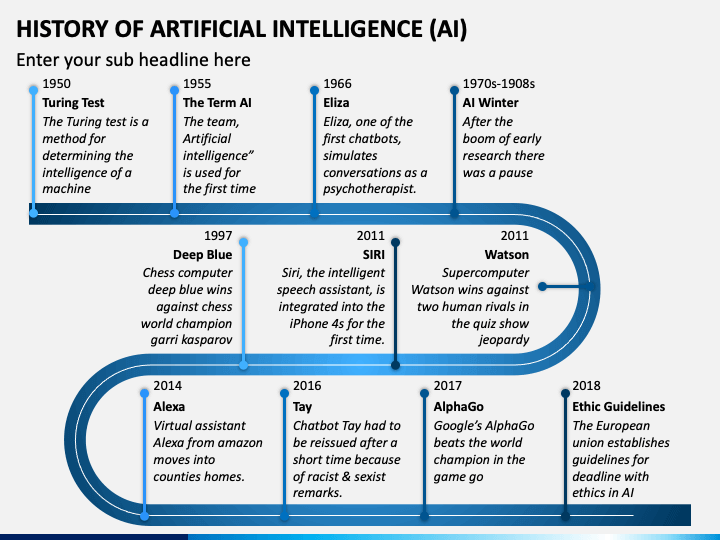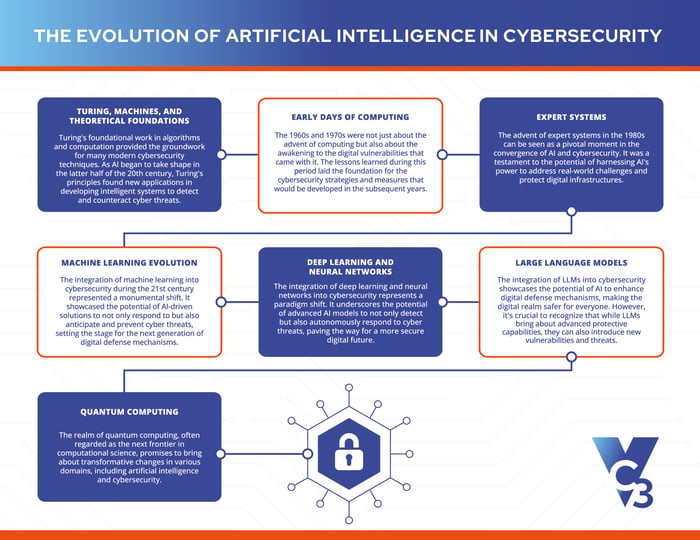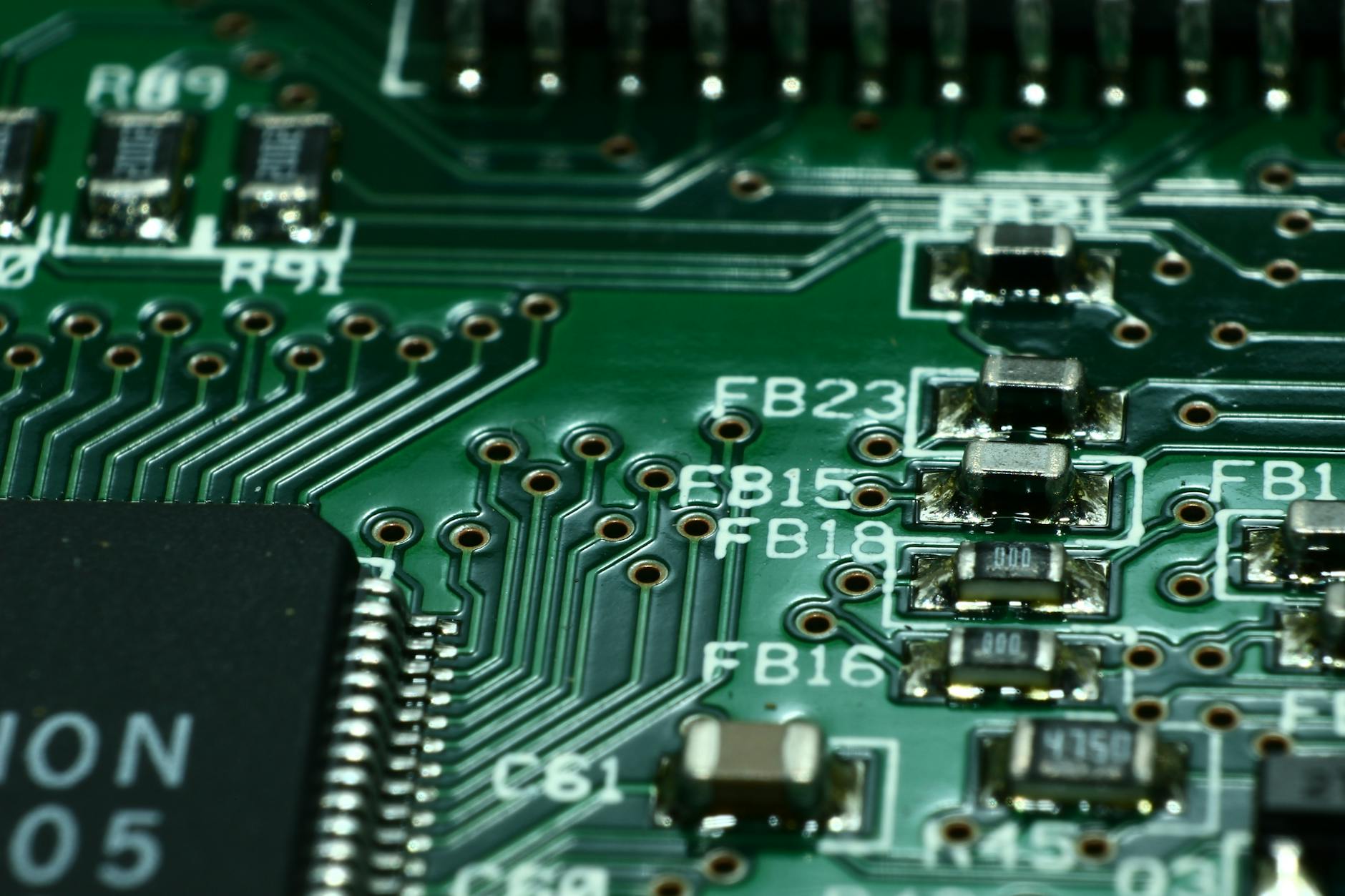Uncover the fascinating evolution of artificial intelligence, tracing its roots from Turing’s code-breaking genius to Tesla’s cutting-edge innovations.
Table of Contents
Welcome, dear readers, to our deep dive into the fascinating world of artificial intelligence. From its humble beginnings to its current applications and future implications, AI has become an integral part of our lives. In this blog series, we will explore the historical context, benefits, challenges, and ethical concerns surrounding AI. Let’s embark on this journey together, starting with a look back at the origins of AI.
Origins of AI: A Brief Overview
Artificial intelligence, or AI, dates back to the 1950s when the term was first coined at a conference at Dartmouth College. The pioneers of AI, including the likes of Alan Turing and John McCarthy, laid the foundation for what would become a revolutionary field of study. Turing’s famous Turing Test and McCarthy’s development of the LISP programming language were crucial milestones in the early days of AI.
Over the years, AI has evolved from simple rule-based systems to sophisticated machine learning algorithms that can learn from data and make predictions. Today, AI is used in a wide range of applications, from self-driving cars to virtual assistants like Siri and Alexa. The possibilities seem endless, but with great power comes great responsibility.
Challenges and Opportunities in AI
While AI has the potential to transform industries and improve our quality of life, it also poses significant challenges. One of the biggest concerns surrounding AI is its impact on jobs. As AI becomes more advanced, there is a fear that it could replace human workers in various industries, leading to unemployment and economic instability.
Additionally, there are ethical concerns related to AI, such as bias in algorithms, invasion of privacy, and the potential for AI to be used for malicious purposes. It is crucial for developers and policymakers to address these ethical issues and ensure that AI is used responsibly and ethically.
Current Applications of AI
Despite these challenges, AI has already made a significant impact in various industries. In healthcare, AI is being used to diagnose diseases, predict patient outcomes, and personalize treatment plans. In finance, AI algorithms are used to detect fraud, automate trading, and analyze market trends.

Image courtesy of www.getrocket.com via Google Images
AI is also transforming the way we interact with technology. Virtual assistants like Siri, Alexa, and Google Assistant use AI to understand and respond to natural language commands. Self-driving cars rely on AI algorithms to navigate roads and avoid obstacles. The possibilities are endless, and AI is only just getting started.
The Future of AI: Where Are We Headed?
As we look to the future, the potential of AI seems limitless. Advancements in machine learning, robotics, and natural language processing are shaping the next generation of AI technologies. From autonomous drones to AI-powered healthcare, the future is filled with exciting possibilities.
However, with great power comes great responsibility. It is essential for developers, policymakers, and society as a whole to ensure that AI is developed and used responsibly. By addressing ethical concerns, promoting transparency, and fostering a culture of inclusivity, we can harness the full potential of AI for the benefit of all.
Can Skynet Happen? Exploring the Dystopian Future of AI
In popular culture, the concept of a malevolent AI, such as Skynet from the Terminator franchise, has captured our imaginations. But could such a dystopian future actually happen? While the likelihood of an AI uprising remains low, there are still valid concerns about the potential risks of advanced AI systems.

Image courtesy of www.vc3.com via Google Images
To prevent a scenario like Skynet from becoming a reality, it is essential to establish safeguards, regulations, and oversight mechanisms for AI technologies. By fostering a culture of responsible AI development and deployment, we can ensure that AI remains a force for good in our world.
Conclusion: Embracing the Future of AI
As we conclude our exploration of artificial intelligence, let us reflect on the incredible progress that has been made in this field. From Turing to Tesla, AI has come a long way, and the journey is far from over. By understanding the historical context, current applications, and future directions of AI, we can better prepare ourselves for the opportunities and challenges that lie ahead.
It is up to all of us to shape the future of AI and ensure that it serves the greater good. By working together to address ethical concerns, promote transparency, and foster innovation, we can unlock the full potential of AI for the benefit of humanity. Let us embrace the future of AI with optimism, curiosity, and a commitment to building a better world for all.



Comments